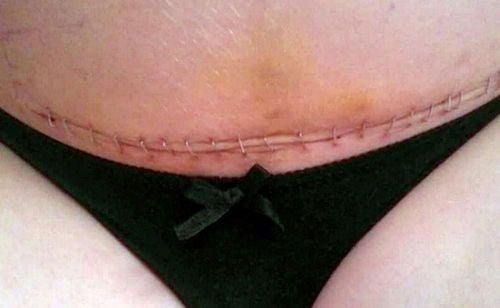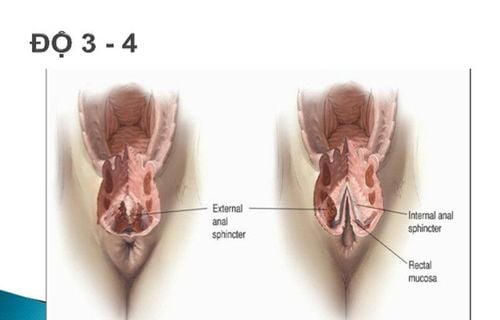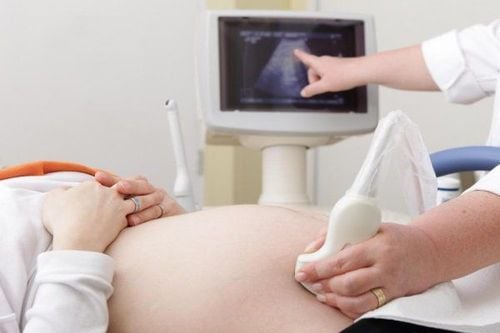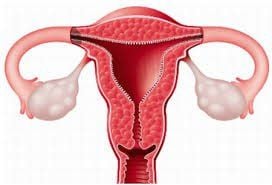This is an automatically translated article.
The article was professionally consulted by Specialist Doctor I Truong Nghia Binh - Obstetrician-Gynecologist - Department of Obstetrics and Gynecology - Vinmec Da Nang International General Hospital.
A placental abruption after delivery is a phenomenon where the placenta is left behind in the uterus after birth, which can cause serious infections that are life-threatening to the mother. Abnormal bleeding is a warning sign of placental abruption.
1. What is placental abruption after birth?
The placenta is the organ that connects the mother and the fetus. The placenta is attached to the wall of the uterus, responsible for providing oxygen and nutrients for the developing fetus, secreting some necessary hormones for the mother's body during pregnancy. In addition, the placenta also protects the fetus from the risk of infection.A woman's body after giving birth does not need the placenta anymore. After a normal delivery, about half an hour, the placenta will be pushed out by the contraction of the uterus. In the case of a cesarean section, the doctor removes the placenta from the uterus.
The entire placenta must be removed from the uterus after you give birth. In some cases, a part of the placenta is left in the uterus, this is placental abruption. A retained placenta can occur because the placenta is partially closed behind the cervix or the placenta is still attached to the uterine wall – whether superficial (placental adhesions) or deep (placenta interlaced).
The placenta after giving birth can cause the mother to get infections of the reproductive organs such as metritis, blocked fallopian tubes..., even bleeding, dangerous to life.
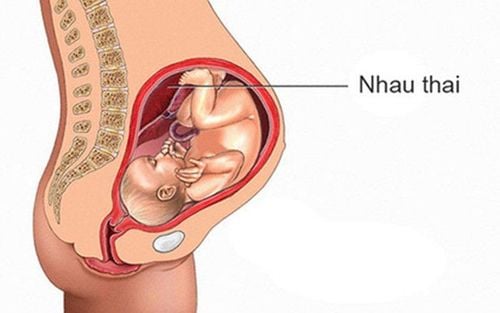
2. What are the symptoms of placental abruption?
There are many signs that can help a woman know that she has a missed placenta. In particular, abnormal bleeding is the most important sign of placental residual.Abnormal bleeding in pregnant women can sometimes be confused with postpartum discharge. Normally, after giving birth, women may have discharge and blood that lasts up to a month. However, in the placenta, the mother's fluid has many abnormalities such as: The discharge is black, has an unpleasant odor. In particular, women with residual placenta have much more bleeding and fluid than usual, bright red blood and clots.
Accompanied by a number of symptoms:
Abdominal pain much, dull or constant in the lower abdomen. Fever. The uterus may contract poorly. Patients lose a lot of blood, so they often have symptoms of fatigue, in worse cases, they may be shocked. Placental defects often cause infections, so signs of infection in postpartum women such as fever, bad breath, fatigue, etc. need to be paid special attention. A missed placenta can be detected early by examining the placenta. Therefore, if there are signs of placental abruption, women need to see a doctor immediately to know about their condition as well as to have timely treatment.
3. Can ultrasound detect placental abruption?
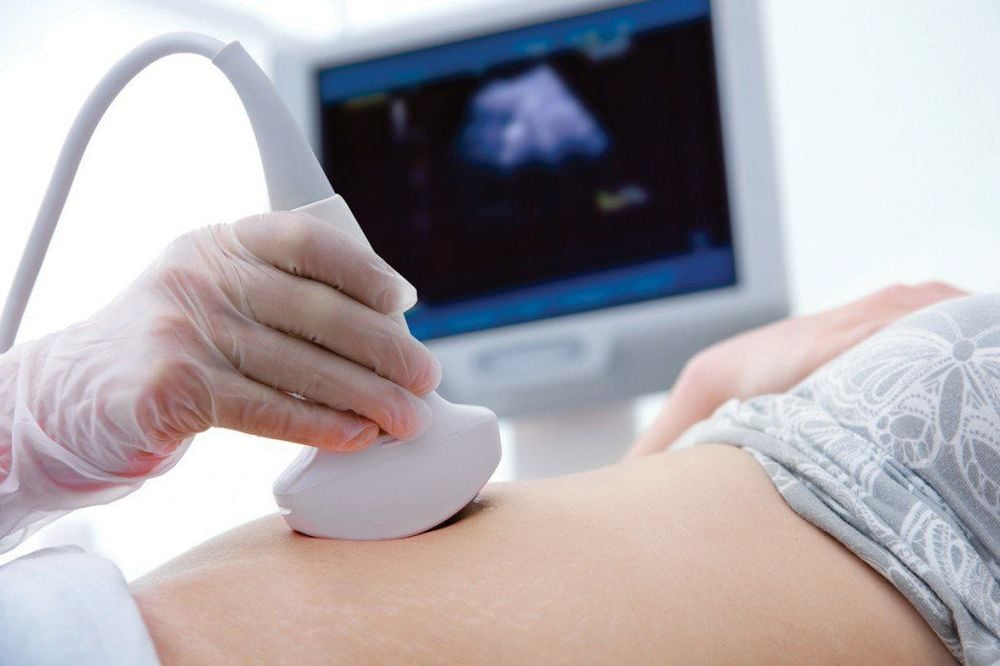
In some cases, the fetus and placenta have been removed but the uterine cavity is still filled with blood and fluid has not been drained, ultrasound can show mixed echo mass in the uterine cavity.
In case of detected placental abruption, the patient can be treated medically and monitored for a while to monitor the progress. In case the volume is large and does not decrease after the follow-up period, surgical intervention can be carried out. The doctor will remove the remaining placenta and use antibiotics to prevent infection and bleeding.
Ensuring that the placenta is completely out of the uterus, whether the mother has a vaginal birth or a cesarean section, depends not only on the mother's condition but also on the qualifications of the obstetrician-gynecologist as well as the care. postpartum care for mothers. With the Maternity Package at Vinmec International General Hospital, mothers and babies will be cared for and monitored not only before and during childbirth, but also after birth. Mother's health will be restored fastest, avoiding complications later.
To know more about the maternity package of Vinmec International General Hospital, you can call hotline 0243 9743 556 or register online here.
Specialist doctor I Truong Nghia Binh has over 13 years of experience in the field of Obstetrics and Gynecology, has high expertise and long experience in diagnosing and treating Obstetrics and Gynecology diseases such as: screening for diseases of mother and baby before birth chorionic villus biopsies, amniocentesis.. Ultrasound to screen for fetal malformations (3D, 4D ultrasound) Follow-up, birth control in cases of normal or difficult birth treatment of pre-eclampsia, placenta previa, pregnancy with complicated medical conditions... Cesarean section for 1st, 2nd, 3rd time caesarean section... Examination, treatment treatment of gynecological diseases. Examination and consultation of infertile couples
Please dial HOTLINE for more information or register for an appointment HERE. Download MyVinmec app to make appointments faster and to manage your bookings easily.





